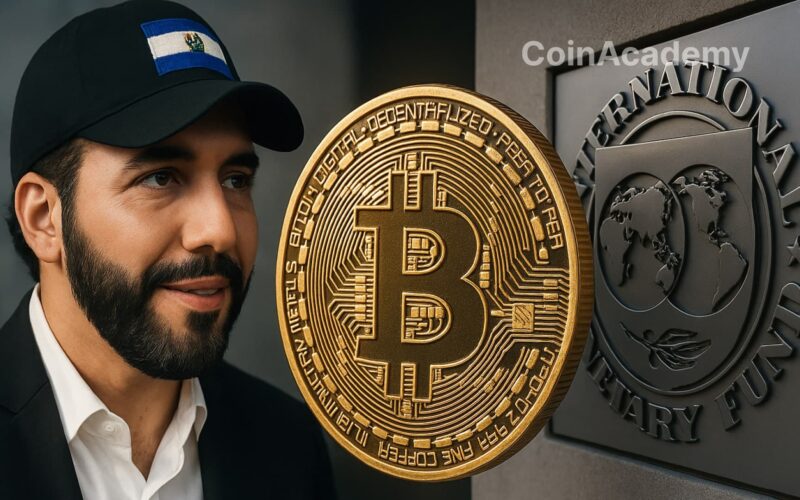While El Salvador continues to stack bitcoins, the International Monetary Fund prefers to tread lightly on the diplomatic front. In a note released on Tuesday, the IMF states that “efforts will continue” to prevent the country from increasing its holdings. A coded message, without threats, in the face of a president who clearly has no intention of letting go of his digital treasure.
Le FMI insiste pour empêcher El Salvador d’accroître ses réserves de Bitcoin
In March, El Salvador secured a $3.5 billion aid package from the IMF. Part of the deal included a stipulation to abandon Bitcoin’s legal tender status and a formal ban on further accumulation through the public sector. Officially, the state was supposed to halt its purchases.
However, on the ground, the government of Nayib Bukele is following a different path. Since the agreement was signed, the national wallet has grown from 6,101 to 6,189 BTC, roughly $678 million at the current rate. A clear signal: despite international aid, Bukele remains loyal to his pro-Bitcoin strategy.
Bukele persists and signs
The president makes no secret of it. “No, we’re not stopping,” he wrote on X on March 4. “If we didn’t stop when the world ostracized us, and even the Bitcoiners turned their backs on us, we’re not going to change now.” The tone is clear, unapologetic, and resolutely in defiance of the IMF’s recommendations.
Despite this, the IMF avoids direct confrontation in its communication. Instead, it states that “the program’s performance has been solid” and thanks the Salvadoran authorities for their “excellent collaboration.” Not a word about the additional 88 BTC.
The Bitcoin-FMI deal, an assumed hypocrisy?
This ambiguity maintained by the IMF raises a simple question: how far is the institution willing to tolerate Salvadoran deviations to ensure the stability of its program? Officially, the stance is firm. Unofficially, the bitcoins keep flowing in.
For Bukele, the message is clear: economic sovereignty comes from direct Bitcoin holdings. For the IMF, the risk is more insidious: by turning a blind eye, it silently validates a policy it condemns in its reports. Only time will reveal who is truly bluffing.



